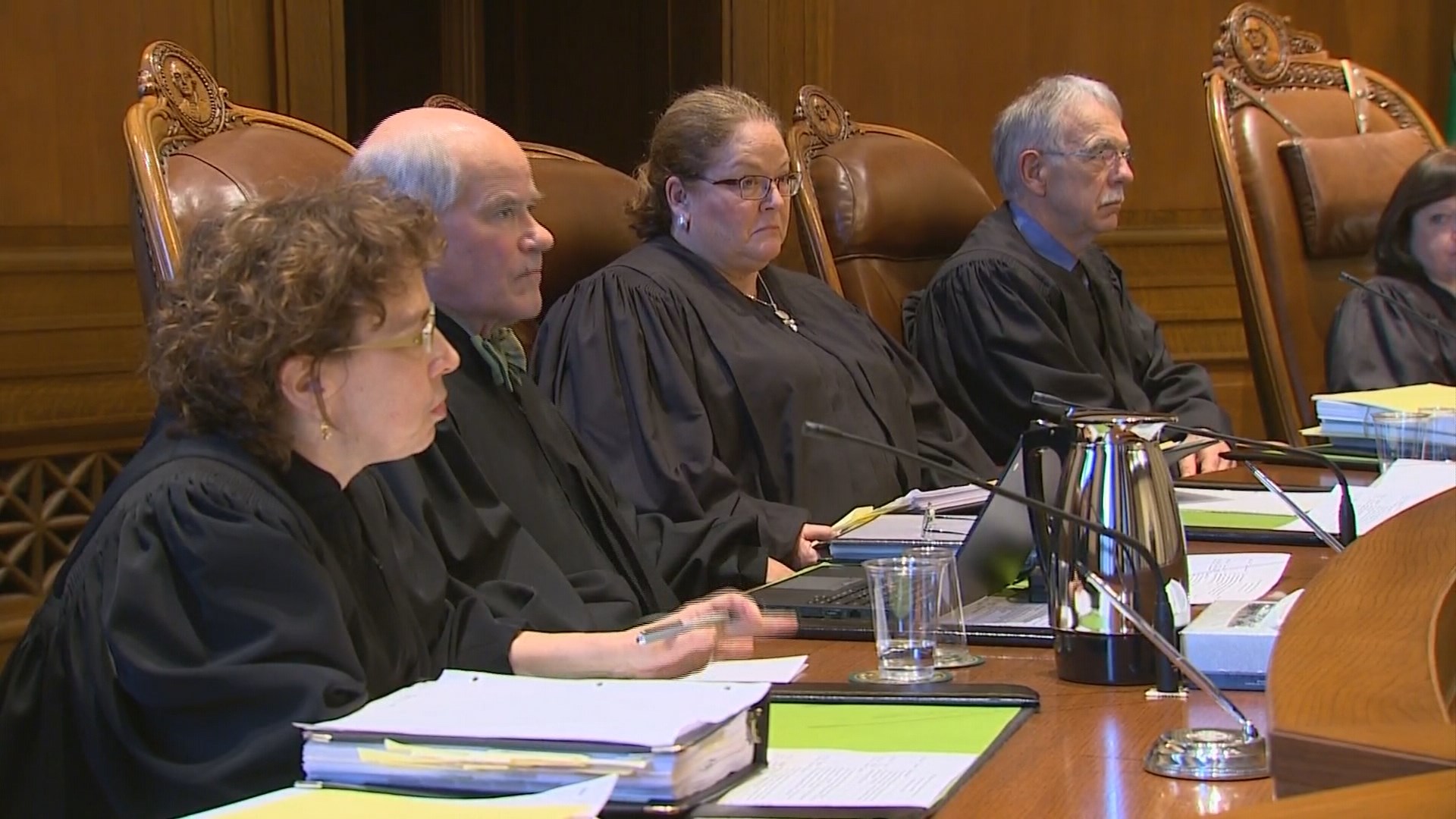OLYMPIA, Wash. -- Lee Peden knew it would take years to see her daughter's killer executed, but after waiting nearly 20 years, she now fears it will never happen.
Attorneys are using Peden's daughter's case to attempt to get the death penalty ruled unconstitutional in Washington.
"It would be an awful miscarriage of justice," said Peden.
In July of 1996, Peden's daughter, Geneie Harshfield, was raped, stabbed and killed.
A jury convicted Allen Gregory and sentenced him to death for Peden's murder.
After the Supreme Court rejected the death penalty, another jury sentenced him to death in 2012.
Gregory's case was before the state's Supreme Court again Thursday.
Attorneys for the ACLU of Washington and dozens of former judges argued the death penalty is racially biased and arbitrary depending where the crime is committed in the state.
ACLU attorney Jeffrey Robinson argued Gregory was more likely to get the death penalty because the crime happened in Pierce County, where prosecutors are seeking the death penalty more often than in other counties.
Robinson also said race plays an unfair role in the death penalty system.
"If you're African American, you're somewhere between three and four-and-a-half times more likely to get the death penalty than if you're white," said ACLU attorney Jeffrey Robinson. "It's intolerable."
Robinson also brought up the nation's history of lynchings during his argument.
"I'm asking you to think about the strange fruit hanging from poplar trees," said Robinson, "because for many people in this country, that image still resonates with the death penalty in America."
Gregory's original prosecutor, John Nebb, argued jurors in Gregory's case had the option of giving him mercy while deliberating.
Kathleen Proctor also argued the death penalty is constitutional.
She said prosecutors, jurors and the governor all have the option to rule out the death penalty.
Proctor also said the overwhelming majority of those put to death in Washington state have been white.
Peden said race did not play a role in her wanting her daughter's killer executed.
"I don't care if he was purple," said Peden. "It's what he did."
She fears if the death penalty is overturned, Gregory might end up getting released from prison.
"They'll say, ‘Well he's there for life.' Sure, but what happens 20 years from now?" asked Peden.


